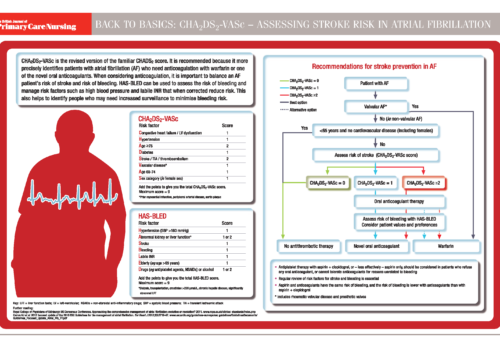The 2012 ESC guidelines on heart failure, published only two years after the updated NICE guideline, spell out therapeutic advances about which doctors need to be aware. They include recommendations on mineralocorticoid receptor antagonists (MRAs), ivabradine and cardiac resynchronisation therapy (CRT).
Guidance on optimal management of stable angina in general practice
For most people symptoms can be controlled by optimal medical management and healthy lifestyle choices. Revascularisation gives symptom relief but is not without risk, and its long-term benefits remain uncertain.
Medication adherence in cardiovascular disease: how to address one of the challenges of preventive medicine
Drugs don’t work in people who don’t take them. This is a problem that affects 57% of all patients prescribed drugs to prevent heart attacks and strokes, according to a recent meta-analysis combining data from more than 370,000 patients.
Heart rate control in people with heart failure: education may improve outcomes
Heart rate appears to be a marker for optimal medical therapy in heart failure, and a key determinant of hospitalisation. This study compared practices using the local enhanced service (LES) for heart failure against those not delivering the LES. Education and heart rate control seem to influence hospitalisation rates.
An intervention trial for patients with hyperglycaemia and acute coronary syndrome: How effective is lifestyle advice?
Abnormal glucose metabolism in people admitted to hospital experiencing an acute coronary syndrome (ACS) strongly predicts development of type 2 diabetes and future cardiovascular events. This paper describes a prospective nine-month parallel design randomised intervention trial involving people admitted to the Wellington Regional Heart and Lung Unit with ACS and hyperglycaemia.
Sex hormones and the male heart
There is conclusive evidence that low testosterone is associated with erectile dysfunction (ED) and that ED is a strong marker for cardiovascular risk. There seems to be a link between testosterone level and mortality, and there are suggestions that testosterone replacement therapy may reduce mortality.
Editorial
Sometimes I shock myself with what I do not know. But one of the fantastic things about working as a practice nurse is that there are so many chances to find out something new. We can all learn things from simply talking to patients. When I was starting out, it bothered me (‘the professional’) when a patient knew more than I did. But the patients were so nice—I think they felt sorry for me— that I soon stopped feeling overwhelmed and became interested.
Back to Basics: CHA2DS2-VASc – Assessing stroke risk in atrial fibrillation
Weight loss: Which methods really work for patients?
Nearly two thirds of adults in England are overweight and one quarter are obese. Given the physical, social, psychological and economic consequences of overweight and obesity, it is understandable that patients are drawn to fad diets and quick fixes. Unfortunately, there is no easy route to sustained weight loss, but several options are now available that can help patients to lose weight and improve their health.
Did she fall or was she pushed?
Falls are a relatively common occurrence in older people and can have serious consequences for their health and independence. Many falls are preventable, and the annual review provides an excellent opportunity for practice nurses to consider how long term conditions and medication may ‘push’ an elderly patient into a fall.
Structured education in diabetes
NICE recommends that all patients with diabetes should be offered a structured educational programme at diagnosis, together with regular reviews and updates. Several programmes are available that meet NICE criteria, and there is evidence that they can help to improve patients’ quality of life, well-being and diabetic control.
Conservative care in advanced kidney disease
Some patients with advanced kidney disease may prefer not to receive treatment with dialysis. Conservative management describes the care designed to relieve these patients’ symptoms and maximise their health during their remaining months or years. By working with local renal and palliative services, practice nurses and other primary healthcare professionals will play a major role in ensuring a good death for kidney patients opting for conservative management.























